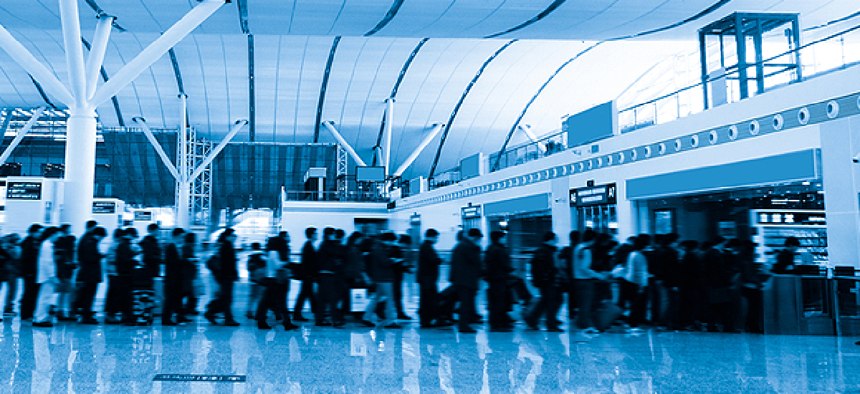TSA considers self-service security scans


Connecting state and local government leaders
Just as self-service boarding-pass kiosks have streamlined check in at airports, TSA is considering how technology can speed up security scanning of passengers and carry-on items.
To speed security scans at airports, the Transportation Security Administration is considering allowing passengers to screen themselves.
Just as self-service boarding-pass kiosks have streamlined check in at airports, TSA is considering how technology can speed up security scanning of passengers and carry-on items and save space at airports – all while still ensuring the same level of security provided by TSA agents.
A slide deck included with a contracting notice published Jan. 6 illustrates potential designs for self-screening stations as envisioned by TSA and the Department of Homeland Security Science and Technology Directorate's Apex Screening at Speed program. Eight stations, featuring metal detectors and imaging technology, could be configured to occupy the same space as a single checkpoint lane and provide "complete imaging without the need for passengers to pause in a specific stance."
Additionally, the new systems would combine the screening of carry-on items and passengers into a single step and give travelers the opportunity to respond to alarms by removing items that trigger machine responses and screen them separately or discard them without having to endure a pat-down from a TSA officer.
TSA has a few guidelines for vendors interesting in designing self-service screening systems, including making the components compact to increase the flow of passengers through security, designing the self-service aspects of the interface so it is easy to use and expecting the system to operate without much supervision from TSA officers.
The self-service screening is TSA's latest effort to improve the speed and efficiency of security scans. It is also working to deploy computed tomography (CT) scans for carry-on baggage and has explored integrating artificial intelligence into scanners to spot subtle modifications to newly introduced consumer devices that could pose threats.
In a statement of work included with the notice, the program indicated that it envisions a prototype to be delivered 20 months after an award, with a field test of the new gear coming maybe four years after the initial award. The notice indicates that TSA PreCheck users will be the first travelers to test out the self-service technology, should the program prove successful.
TSA is hosting a Feb. 12 industry day to hear more from vendors and will accept responses to a request for information on self-screening through Feb. 21.
This article was first posted to FCW, a sibling site to GCN.
NEXT STORY: Public sector accelerates vehicle automation





